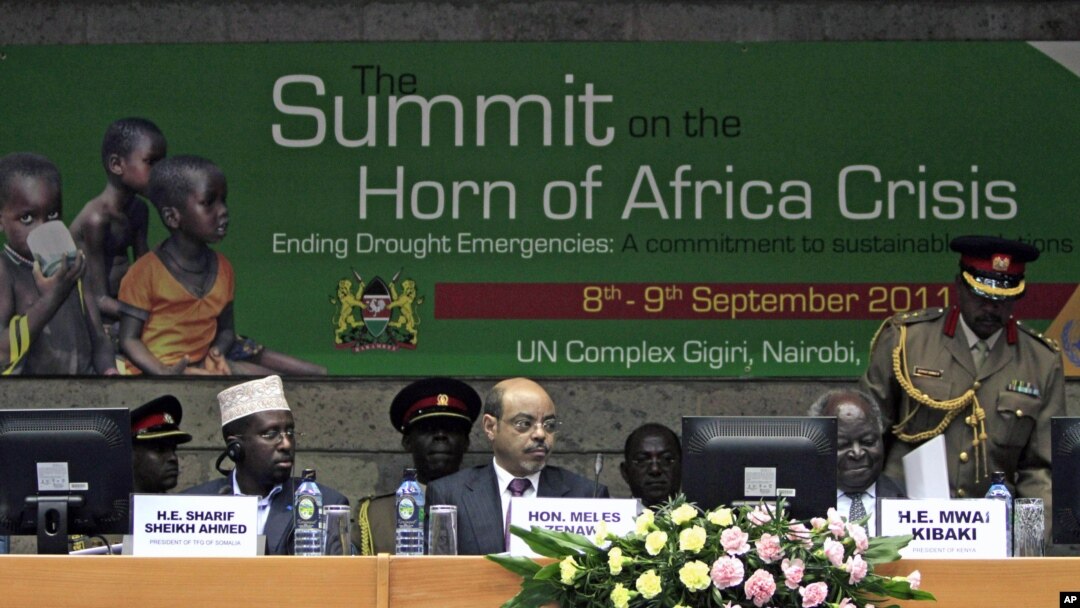Leaders attending a Horn of Africa Crisis summit in Nairobi Friday expressed deep concern about the drought crisis in the region and instability in Somalia. East African leaders paid particular attention to the security concerns posed by an influx of refugees.
A declaration was issued at the end of a summit at U.N. headquarters in Nairobi, noting the drought and famine crisis poses serious threats to all countries in the region.
Kenyan President Mwai Kibaki, whose country hosted the summit, noted that Kenya is already accommodating hundreds of thousands of Somali refugees at the Dadaab refugee camps.
The massive influx of people escaping the ravages of famine also present serious security challenges, Kibaki said.
“With the large number of people arriving at the camps on a daily basis it has become more difficult to control the smuggling of small arms and light weapons into the neighboring countries.”
The declaration also calls for the United Nations and the international community to consider enhancing the mandate of AMISOM, the African Union force in Somalia, from that of a peacekeeping mission to one of peacekeeping enforcement.
The statement did not specify what that change would entail.
Ethiopian Prime Minister Meles Zenawi called for more support for forces that are supporting Somalia's Transitional Federal Government, or TFG, in areas previously beyond their control.
"We need urgently to support the TFG, AMISOM and other forces to create corridors of humanitrarian assistance in the liberated areas and beyond," President Meles said. "This will reduce refugee outflows and make it possible to assist populations inside Somalia inside their own home areas."
Uganda and Burundi already contribute forces to AMISOM, while Djibouti has recently announced that it will send a battalion to join the force. Kenya, on the other hand, has refused to participate in the mission.
AMISOM and the TFG recently drove the al-Qaida linked militant group al-Shabab out of the capital, Mogadishu, but widespread areas of the country remain under militant control.
In addition to security concerns, participants at the summit also called attention to the threat of climate change. They said addressing the ecological conditions that are creating cycles of drought in the region is essential to finding a long-term solution to the crisis.


